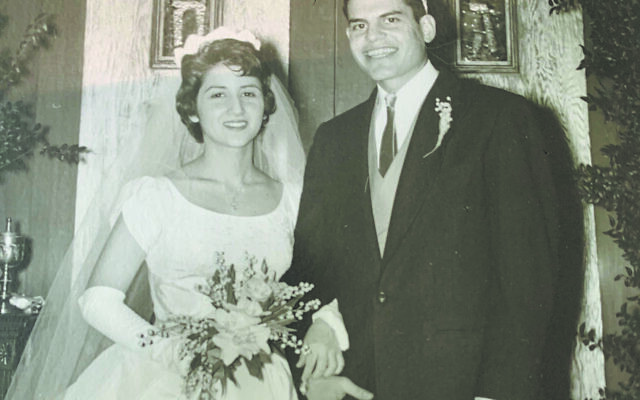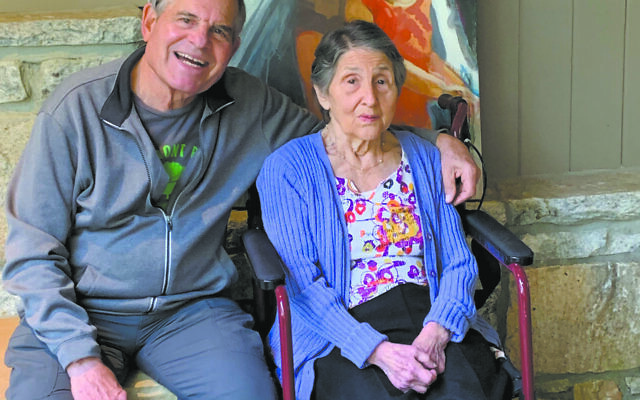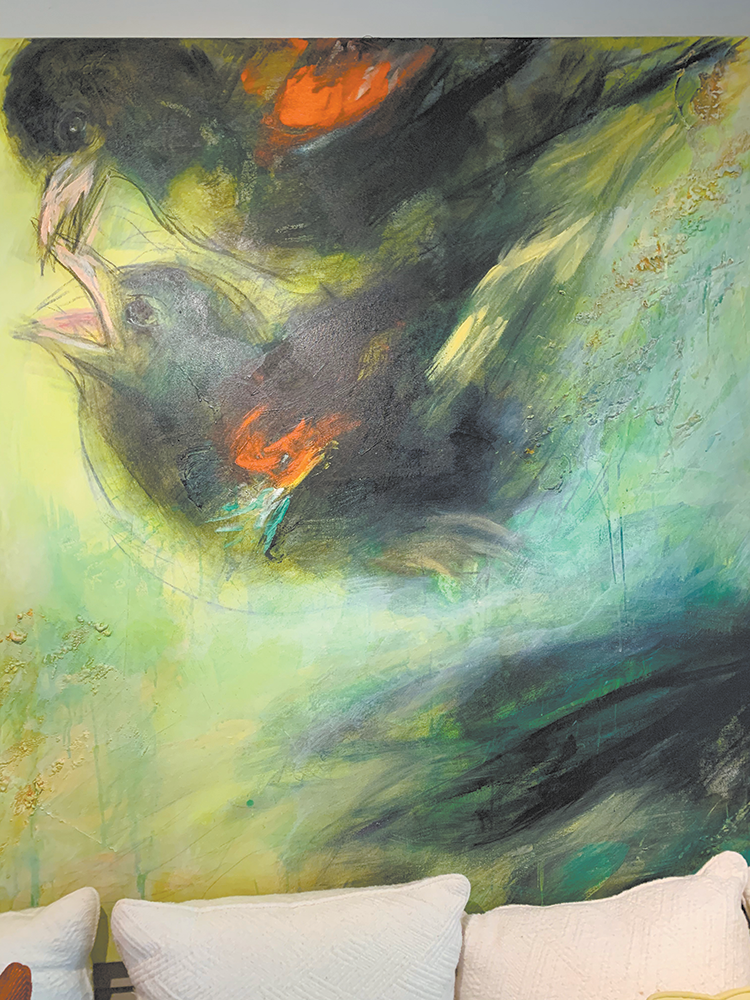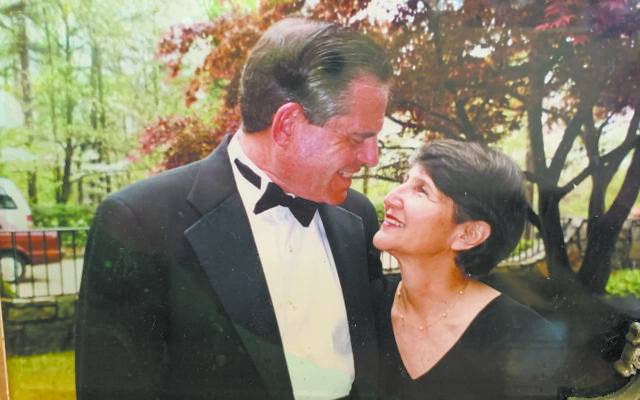Progression with Alzheimer’s Magnifies Love
The story of a doctor and his wife is an emotional and positive approach to what another side of life can bring, recalling the vow ‘in sickness and in health.’
After 37 years with the Atlanta Journal-Constitution and now with the AJT, , Jaffe’s focus is lifestyle, art, dining, fashion, and community events with emphasis on Jewish movers and shakers.
The Oct. 14 season finale of “Your Fantastic Mind” followed Phyllis and Richard Franco’s 60-year marriage along the progression of her Alzheimer’s, still finding the beauty and love in that bond. According to the Emory Brain Health Center, 16 million Americans are caregivers for someone with dementia. “It is often a complicated, painful, often thankless responsibility,” the center reports.
Dr. Richard Franco decries that position as he tells his story in this Georgia Public Broadcasting segment taped a year ago. Ironically, Franco practiced neurology for decades when he noticed changes in Phyllis 12 years ago. He retired to care for her full time eight years ago.
“I don’t look at myself as a caregiver, but rather partners [both 82] who function together.” The video shows Richard loading up the wheelchair and smiling as he takes Phyllis for regular walks, pointing out scenery, nice weather and nature.

“I chose to focus on what remains, the whole person. The patient should not be written off as a ‘body with no mental content.’ There is an underlying persona. We hold hands, she gets reassured as do I. Her smile and kindness are still there.”
As a health professional, Franco shares his views on Alzheimer’s. “It may start with mild cognitive impairment, but progress to interfere with daily chores like dressing and bathing. Phyllis was asking me questions about running the household, which was her domain. Another clue would be asking the same questions repeatedly, … patterns of this. Many of us can be preoccupied or stressed in doing occasional forgetful things; that is not comparable.”
Franco states that music is located in a different part of the brain and can be spared, less damaged than the speech area, noted in 2012 when Congresswoman Gabby Gifford was shot. During her recovery, therapists broke through by singing instructions to her. Richard is filmed taking Phyllis (pre-COVID) to Atlanta Symphony Orchestra rehearsals, where she lights up.
The adult Franco children were featured singing “Cheery Bim” the Motzi, “You are My Sunshine” and familiar tunes with Mom joining in. A granddaughter delights by playing one of Phyllis’ favorites, “Clair de Lune” on the piano.
Regarding children, Richard states that their three children, especially two local daughters, have been invaluable. He credits Meryl Franco with “lifesaving daily FaceTime sessions.”

She said, “Mom and I have continued to paint, often co-creating one piece together, inspired by the beauty around us. We have laughed at the outcome and just cherished looking into each others eyes, holding hands and singing songs throughout.
Mom has led the way with her strong spirit and Dad falls in love with her more each day, doing whatever it takes to make her happy. They reveal the core of who they have always been; she keeps shining her loving essence, and he sings love songs to make her smile.”
Rebecca Franco Chalmers added, “It is painful to see the changes Alzheimer’s has brought. As we have grieved, we have gained appreciation for who she was and is still, inspiration to model ourselves after her in how we care for one another. In embracing the ‘full catastrophe,’ we actually laugh and enjoy the sweet and funny parts, and adapt to change. Although we are living the ‘long goodbye,’ the surprise is how much there is to say ‘hello’ to. … People with Alzheimer’s can re-route and learn even as they are unlearning!
“She forgot my name years ago, but recently said it. More importantly, she didn’t forget me, and if she does, there is still the love she shows. Seen in the film, she gazed at her grandchild at the piano. The way she looks differently at each of us. That tells me the complexity remains of how she sees individuals.”

Phyllis was indeed a talented painter. Her range was impressionistic, abstract, rich in color. Today in their Buckhead home (and other well-curated homes) are her paintings. Richard emotes that her last painting was a totally different style and subject, depicting an entrance into a hall to an unknown door. “Perhaps she was expressing her feeling as the disease progressed, entering a different unknown place. Often she used birds representing kids leaving the nest. We used to canoe in the reeds on the Chestatee [in North Georgia] when she connected to the red wing blackbird.”
Richard concludes, “People were touched by the show. I am proud of Phyllis. Alzheimer’s can be a devastating tragedy robbing victims of skills. She was a creative artist, musician, athlete, analytic and insightful. Maybe it was my destiny to prepare for this. It’s ‘Phyllis’ just not the same ‘Phyllis.’”
He croons in the film, “You and me … Side by Side.” The song continues for those who know it, “Through all kinds of weather. What if the sky should fall? … It doesn’t matter at all … travelin’ along, singin’ a song, side by side.”




comments